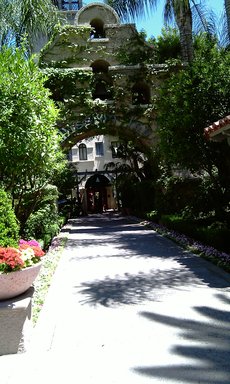
By Ramon Trujillo
On Tuesday, July 19, 2011, Gupta & Trujillo’s attorneys, Anjana Gupta and Ramon Trujillo, participated in LawReview CLE’s course entitled Immigration Law Fundamentals as guest lecturers. The event, which was held at the beautiful Mission Inn hotel in Riverside, California, covered the basics of immigration law, from the sources of immigration law to more complex U-Visa and VAWA petitions. The course was approved for 7 CLE credits by the State Bar of California, including 1 ethics hour. While Immigration Law Fundamentals is a newer course that LawReview CLE offers as part of their Continuing Legal Education programming, the course had a good-sized turnout of immigration practitioners of various levels of experience.
Anjana Gupta and Ramon Trujillo hosted the first half of the event, specifically covering the topics of the Introduction to Legal Immigration Law, which discussed an overview of the sources of immigration law, then a brief description and explanation of the various types of nonimmigrant and immigrant visas.
Following the introductory section, we covered the topic of Family-Based Visas. The family based visas section went over the basics of the types of visas available that are family based, the types of petitioners that could make those petitions, and the types of beneficiaries who could obtain immigrant status through a family based petition. As one of the major avenues of immigration into the United States, the family based visa section also covered the methods and forms needed in order to file a successful application.
Finally, we covered a section of VAWA (Violence Against Women Act) and Visas designated for Victims of crime, such as T and U visas. This area of immigration can be an extremely difficult because of the nature of the types of Visas. As discussed with those in attendance, these types of visas can be very emotional as they are very fact intensive and broach upon very sensitive subjects.
Throughout the lecture, we often took time departing from the established curriculum to field questions asked by those in attendance. The addition of the extra, more detailed questions about the areas of law added to the understanding of all those in attendance.